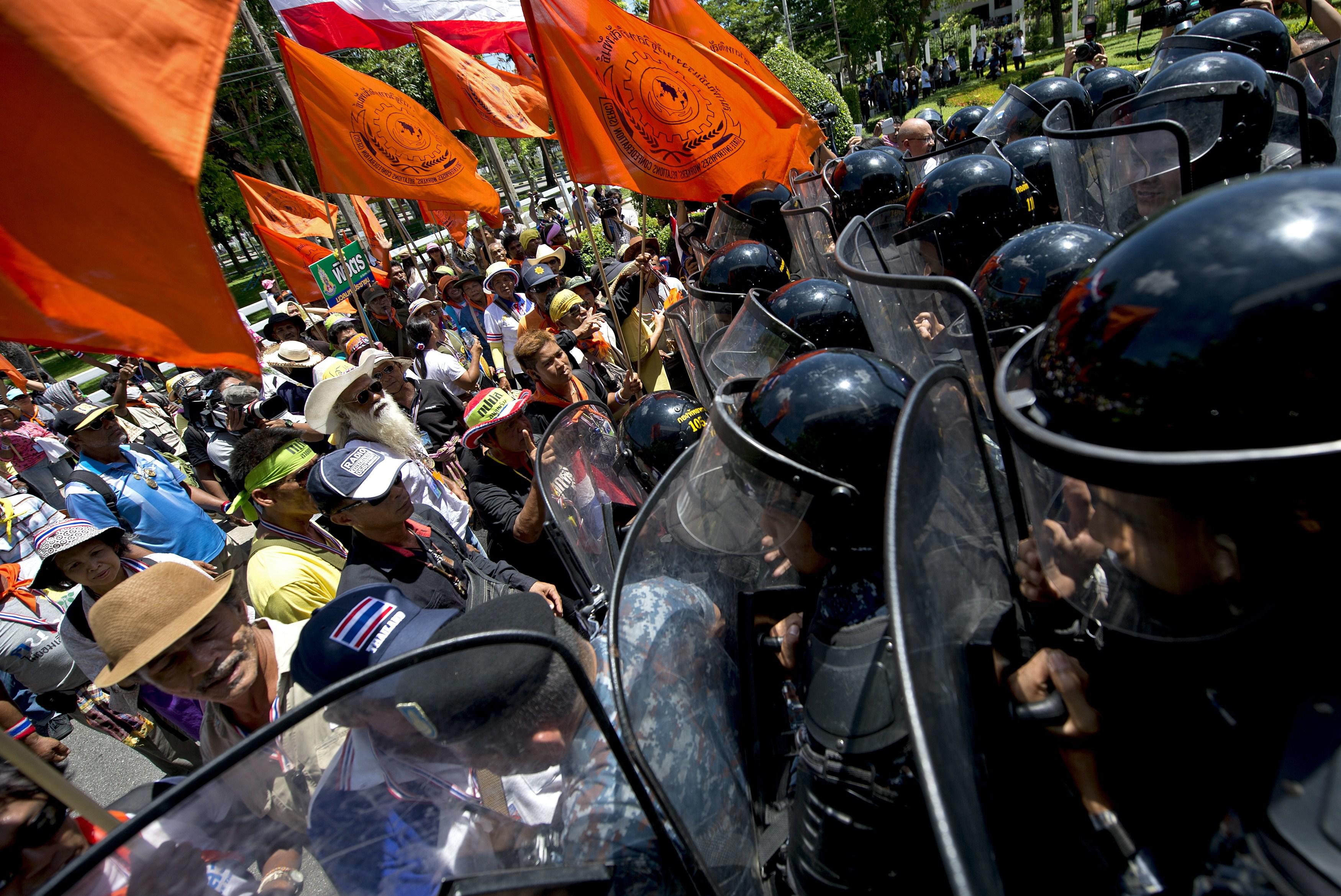Thailand’s military has imposed martial law on the country, but assures us that what’s happening if definitely not a coup:
The military sought to convince the public that the army was not launching a coup. A message on a military-controlled television station Tuesday morning read: “We urge people not to panic. Please carry on your daily activities as usual. The imposition of martial law is not a coup d’état.”
The situation is somewhat reminiscent of the overthrow of Mohamed Morsy by the Egyptian military last year, when opponents of the Muslim Brotherhood strongly objected to descriptions of the even as a coup d’etat.
It’s a political distinction—Thailand knows from coups having experienced at least 11 in the past century—and a legal one: if the U.S. acknowledged that a coup took place, it has to cut off military aid. This is why U.S. officials almost never drop the c-word in these situations.
Human Rights Watch says that the events in Thailand are “effectively a coup.” One of caretaker Prime Minister Niwatthamrong Boonsongpaisan’s top aids calls it “half a coup.”
There’s no reason to overthink this. A coup is generally defined as “a forceful seizure of executive authority and office by a dissident/opposition faction within the country’s ruling or political elites that results in a substantial change in the executive leadership and the policies of the prior regime.”
Last week, Prime Minister Yingluck Shinawatra was removed from office by the courts. If the military, which has until now stayed relatively neutral in the ongoing dispute between Yingluck and the country’s “yellow shirt” opposition removes Niwatthamrong from power, it would be hard to call it anything other than a coup.
There is an ongoing debate about whether there are circumstances under which coups can be “democratic.” Political scientist Ozan Varol has argued that they can under certain circumstances, namely when the military overthrows an authoritarian government in response to popular uprising and quickly relinquishes power to a democratically elected government.
That’s not the case here. Yingluck and her brother Thaksin, for all their faults, have won every election they have contested over past decade and their opponents seem intent on reordering the country’s electoral system to prevent them from coming back into power.
It’s now looking increasingly like they’re going to embark on this process with military force behind them.
